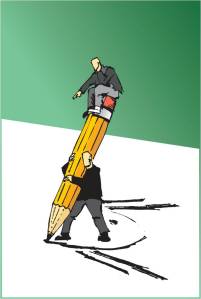 The first anniversary is hard, they say.
The first anniversary is hard, they say.
Compared to what? The first day, week? Decade?
It seems “they” are right.
Late May. Roses in full bloom. The season of calls from nice detectives with an unbearable task.
(What families must feel when the find a soldier at their front door.)
“Is this a joke?” I asked. Like a bad actor in a bad movie, or a nightmare. Time stopped, but in my head, rushed the refrain: No. Not this. Not Dad. I just spoke with him. He was just here. Just in Italy. Just.
“I’m afraid I’m not joking, Ms. Doyle. I’m very sorry.”
Afterward, I lit candles. Picked some of those roses out there last spring from the Mr. Lincoln, Double Delight, the Gemini bush he bought me for a birthday. Made a beautiful table to lay my sorrow.
“Here’s to more beauty in our lives. Love, Dad.” This, in an enclosure card for the flowers delivered the day he proclaimed Daughters Day—lilies or orchids–I don’t exactly recall.
The roses, I remember.
I know it’s coming this time, you see. I’m ready. This morning, I picked two blood-red Mr. Lincoln blooms, a Double Delight. Three Geminis. They’re in the cobalt blue vase on the little shelf in the kitchen, next to the candle and the photograph.
When the call comes, I’ll talk to that detective with the kind voice, set him straight. Tell him You can’t fool me this time.
Tell him the roses are blooming, and how much Mr. Thomas Doyle loves flowers in any size, shape and scent. That beauty makes sense to him. As for the rest of it, well.
How I’ll keep picking flowers for Dad every May; and loving those roses right along with him, every damn day they bloom, and every day they don’t.
 At points during our more than 20 years together (fifteen of them married) it’s been so hard, we’re pretty sure it must be over. That like all those other couples, Tim and I are done.
At points during our more than 20 years together (fifteen of them married) it’s been so hard, we’re pretty sure it must be over. That like all those other couples, Tim and I are done.  Constance Hale, author of
Constance Hale, author of  My dear friend and writing colleague
My dear friend and writing colleague 
 I’ve been working on a couple of short stories. I’m in awe of how difficult, and liberating, it is to write a good one. Every gesture, scene, and piece of landscape and dialogue has to matter and work to move the reader towards a defining moment.
I’ve been working on a couple of short stories. I’m in awe of how difficult, and liberating, it is to write a good one. Every gesture, scene, and piece of landscape and dialogue has to matter and work to move the reader towards a defining moment. Nathan Englander’s, “The Twenty-seventh Man,” the story of the house arrest and execution of a group of poets and writers in Stalinist Russia, is one of the best pieces of fiction I’ve read in years.
Nathan Englander’s, “The Twenty-seventh Man,” the story of the house arrest and execution of a group of poets and writers in Stalinist Russia, is one of the best pieces of fiction I’ve read in years.  My day job, a freelance marketing writing business, has come to a standstill. Longstanding clients have pulled their writing projects in-house, or cancelled them all together. (I’m still getting some work but the projects are tiny and pay far less than the hourly rate I’m used to).
My day job, a freelance marketing writing business, has come to a standstill. Longstanding clients have pulled their writing projects in-house, or cancelled them all together. (I’m still getting some work but the projects are tiny and pay far less than the hourly rate I’m used to).